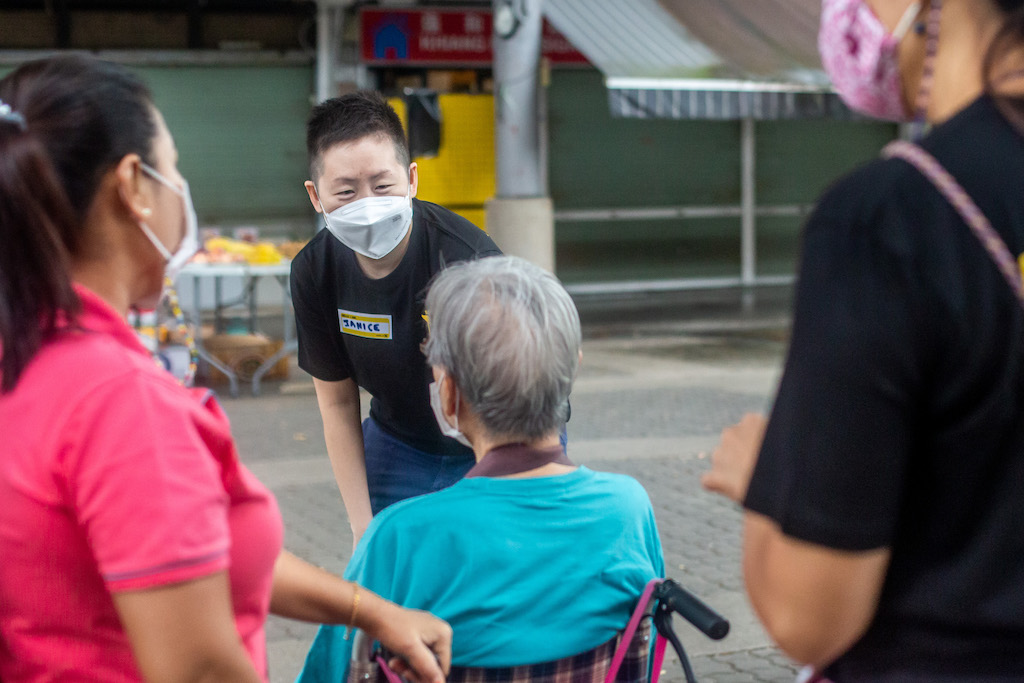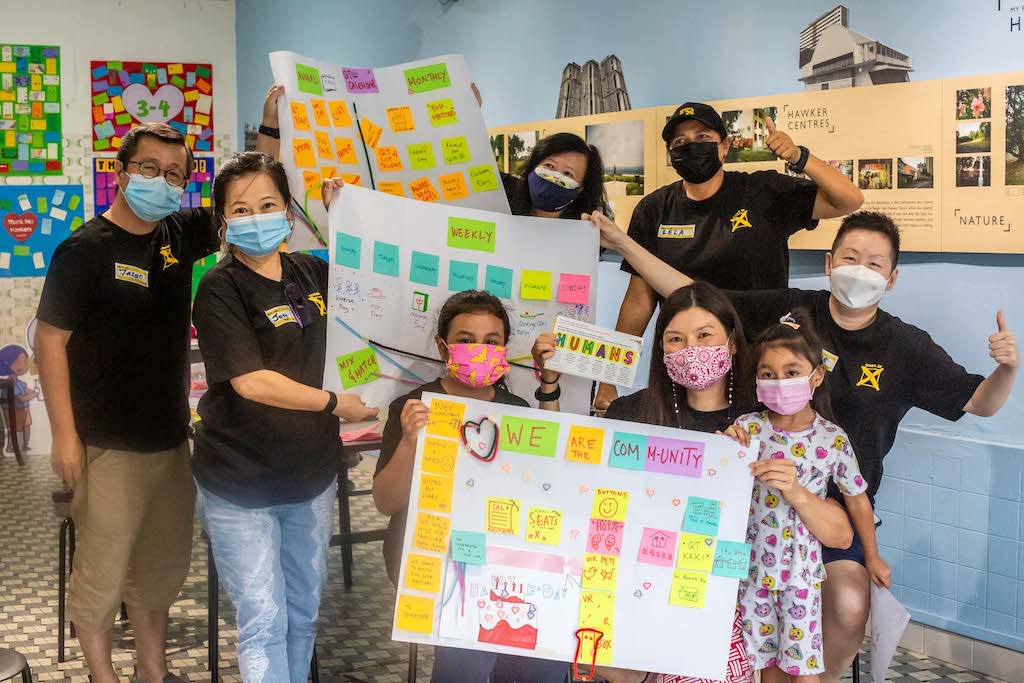Forging new connections
In view of the imminent demolition of the Tanglin Halt estate, a winning team in a bootcamp came up with ideas to build community bonds.

One of the participants carrying out user research in Tanglin Halt.
For the seniors being displaced by the demolition of the old residential blocks in the Tanglin Halt estate, the move to their new community feels exciting but also unsettling. Among the remaining residents being relocated, some have lived in the estate for more than 50 years and rely on a community of hawkers, shopkeepers, and neighbours as their support network.
While the relocation means access to modern new amenities for residents, there are worries about how the move will disrupt the daily routines of the seniors and their social support networks, affect the future of long-time stall-owners, and potentially take a toll on the seniors’ mental and physical well-being. The winning team that was part of the School of X community design bootcamp by the DesignSingapore Council (Dsg) sought to come up with new ideas on how we can better support the seniors in assimilating into and loving their new neighbourhood.
Ten participants from the local community network which included Tanglin Halt residents, identified through user research that many seniors who had already relocated still return to Tanglin Halt daily for their regular chats with friends and buy food from their favourite hawker stalls. One shared that he had lost his spectacles in his new estate, and had come back to his old neighbourhood to see if his friends could help him find them. Saddened that there was no one in his new housing block that he could talk to about this issue, the team was inspired to not only help relocated people to forge connections with strangers in their new housing estates, but also to sustain the treasured relationships from their old one.
Their solution, a ‘Community without Walls’, would create a neighbourhood that welcomes and helps everyone to feel at home. They proposed prompts such as posters in lifts that pose unexpected questions to stimulate serendipitous conversations and freestanding chairs with painted messages that could be moved around the common areas and void decks to encourage interaction.
Happiness ambassadors will also be appointed within each housing block to give out happiness buttons to residents who need a smile and a chat. These volunteer ambassadors will also invite all residents to share their birthdays, as part of the year-round programme of engagement and activities. A communal birthday board will be updated with each person’s birthday and passersby can add greetings and well-wishes, so residents feel valued in their community. These solutions are meant to bring together people, structures, and activities to build community bonds. In this vision for the community, the team believes everyone will become a “QT (Queenstown) Kaki”.

Tanglin Halt team presenting their design solutions.
The team from Queenstown (Tanglin Halt) will receive a seed funding of S$5,000 from Dsg to further develop their proposed solutions. Shared one of the bootcamp participants, Joey Gan, “Many of us who participated in the School of X bootcamp have grown up in Queenstown. We hold the Tanglin Halt estate close to our hearts and understand how hard this relocation can be for the seniors, whose everyday lives revolve around familiar spots and people in the community. It was a heartwarming and rewarding experience to put ourselves in their shoes and design new solutions to improve their lives.”
The School of X bootcamps had close to 30 participants and was conducted at three locations – Queenstown (Tanglin Halt), Telok Blangah and Civic District (National Gallery Singapore). The latter two teams addressed integrating biodiversity in estates and forging connections through art respectively. The half-day bootcamp programme for each team followed a design-centric process of shaping the challenge statement, conducting user research, generating ideas and prototypes, and user testing – to create solutions that tackle their unique challenges.
Teams were paired with experienced design facilitators like Simon Siah, innovation consultant at the National Gallery Singapore’s Y-Lab, and comprised of volunteers, residents, and locals passionate about social causes like Melissa Kwee, CEO of the National Volunteer & Philanthropy Centre and a new resident of Queenstown, and the children of Calvin Soh, founder of One Kind House.
Mark Wee, executive director, Dsg, said: “In the increasingly volatile, uncertain, complex and ambiguous or VUCA world we live in, more than ever, people need to be empathic, collaborative, and creative problem solvers to tackle the many wicked challenges today.”
Added Tamsin Greulich-Smith, director of School of X, Dsg: “These fast-paced bootcamps show just how simple and impactful the design process can be, and are testament to the ability of all citizens to become changemakers! I believe anyone can use design to tackle their challenges – from primary school children to retirees. It’s fundamentally about people; bringing together different perspectives to better understand the problem we’re trying to solve and collaborating to create better solutions.” School of X provides a platform for real-world learning to take place through a collaborative approach that includes training workshops and coaching on designing, testing and implementing solutions.

0 Comments